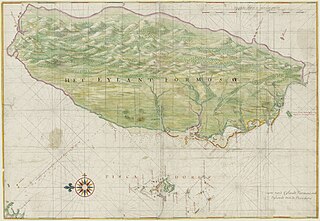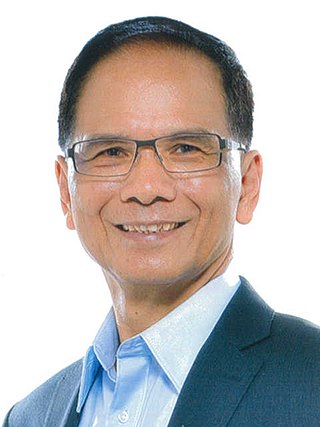Related Research Articles

The Democratic Progressive Party (DPP) is a Taiwanese nationalist and centre-left political party in the Republic of China (Taiwan). Currently controlling both the Republic of China presidency and the unicameral Legislative Yuan, it is the majority ruling party and the dominant party in the Pan-Green Coalition as of 2023.
The Republic of China, commonly known as Taiwan is governed in a framework of a representative democratic republic under a Five-Power system envisioned by Sun Yat-sen, whereby under the constitutional amendments, the President is head of state and the Premier is head of government, and of a multi-party system. Executive power is exercised by the government. Legislative power is vested in primarily with the parliament and limited by government. The Judiciary is independent of the executive and the legislature. In addition, the Civil service power is in charge of validating the qualification of civil servants and the supervision auditory power inspects, reviews, and audits the policies and operations of the government. The party system is dominated by the Kuomintang, which favors closer links to mainland China, and the Democratic Progressive Party, which favors Taiwanese nationalism.

The president of the Republic of China, now often referred to as the president of Taiwan, is the head of state of the Republic of China (ROC), as well as the commander-in-chief of the Republic of China Armed Forces. The position once had authority of ruling over Mainland China, but its remaining jurisdictions has been limited to Taiwan, Penghu, Kinmen, Matsu and other smaller islands since the conclusion of Second Chinese Civil War.

The Legislative Yuan is the unicameral legislature of the Republic of China (Taiwan) located in Taipei. The Legislative Yuan is composed of 113 members, who are directly elected for 4-year terms by people of the Taiwan Area through a parallel voting system.

The National Assembly was the authoritative legislative body of the Republic of China, commonly referred to as Taiwan after 1949, from 1947 to 2005. Along with the Control Yuan and the Legislative Yuan, the National Assembly formed the tricameral parliament of China. If still functional, at 3,045 members, the National Assembly would have been the largest parliamentary chamber in the world.

The Constitution of the Republic of China is the fifth and current constitution of the Republic of China (ROC), ratified by the Kuomintang during the Constituent National Assembly session on 25 December 1946, in Nanjing, and adopted on 25 December 1947. The constitution, along with its Additional Articles, remains effective in ROC-controlled territories.

As a result of the surrender and occupation of Japan at the end of World War II, the islands of Taiwan and Penghu were placed under the governance of the Republic of China (ROC), ruled by the Kuomintang (KMT), on 25 October 1945. Following the February 28 massacre in 1947, martial law was declared in 1949 by the Governor of Taiwan Province, Chen Cheng, and the ROC Ministry of National Defense. Following the end of the Chinese Civil War in 1949, the ROC government retreated from the mainland as the Chinese Communist Party (CCP) proclaimed the establishment of the People's Republic of China. The KMT retreated to Taiwan and declared Taipei the temporary capital of the ROC. For many years, the ROC and PRC each continued to claim in the diplomatic arena to be the sole legitimate government of "China". In 1971, the United Nations expelled the ROC and replaced it with the PRC.

The president of the Legislative Yuan is the presiding officer of the Legislative Yuan of the Republic of China. The incumbent president is Yu Shyi-kun, a Democratic Progressive Party legislator and the second DPP President of the Legislative Yuan.

Taiwan Province is a nominal administrative division of the People's Republic of China (PRC). The PRC constitution defines Taiwan as part of its territories despite the fact that the PRC has never controlled any part of Taiwan since the PRC's establishment in 1949. Taiwan is currently administered by the Republic of China (ROC).

The 1st Legislative Yuan election was held in China between 21 and 23 January 1948. This election, and the preceding 1947 National Assembly election are the first elections of under the newly ratified 1947 Constitution of the Republic of China. Under this constitution, the Legislative Yuan is a standing legislature when the National Assembly is not in session. At the time most of Chinese territory was under the control of the government of the Republic of China, using a direct voting system elected 759 Legislative Representatives. Using the Republic's then 461 million population to calculate, on average 600,000 people elected one representative in the Legislative Yuan. The election along with the one held for the National Assembly also made China the largest democracy at the time.

The Government of the Republic of China is the national government of the Republic of China (ROC) whose de facto territory currently consists of Taiwan, Penghu, Kinmen, Matsu, and other island groups in the "free area". Governed by the Democratic Progressive Party (DPP) since 2016, the president is the head of state. The government consists of the presidency and five branches (Yuan): the Executive Yuan, Legislative Yuan, Judicial Yuan, Examination Yuan, and Control Yuan.
The first supplementary elections took place for the National Assembly and the Legislative Yuan in the Republic of China on 20 December 1969. Voter turnout was 54.7% and 55.0% respectively.
The second supplementary elections took place for the National Assembly and Legislative Yuan of the Republic of China (Taiwan) on 23 December 1972.
The third supplementary elections for the Legislative Yuan were held in the Republic of China (Taiwan) on 20 December 1975.
The fourth supplementary elections for the National Assembly and Legislative Yuan were held in the Republic of China (Taiwan) on 6 December 1980.
The sixth supplementary elections for the National Assembly and Legislative Yuan were held in Taiwan on 6 December 1986.
Legislative elections were held in Taiwan on 2 December 1989 to elect members of the Legislative Yuan.

Legislative elections were held in Taiwan on 19 December 1992.
The 1947 Chinese National Assembly election was held between 21 and 23 November 1947 in China. This is the first election of under the newly ratified 1947 Constitution of the Republic of China. Under this constitution, the National Assembly is an authoritative legislature body that holds the power as constitutional convention and presidential electoral college. A total of 2,961 delegates were elected from across the country.

The National People's Congress (NPC) is the national legislature and constitutionally the supreme state authority of the People's Republic of China.
References
- ↑ Dieter Nohlen, Florian Grotz & Christof Hartmann (2001) Elections in Asia: A data handbook, Volume II, p535 ISBN 0-19-924959-8